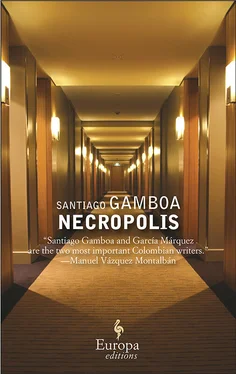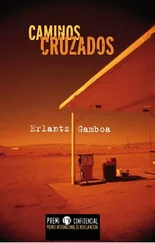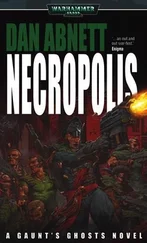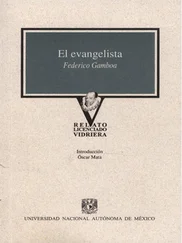When I raised my eyes, the audience realized that I had finished, and I received some timid, uncoordinated applause. The chairperson looked at me again, not with a smile as she had at the beginning but with a touch of incredulity, which suggested to me that my text had little or no connection with the theme that was being discussed, or at least with her original question, which unfortunately I had not been able to hear and which I had been too embarrassed to ask her to repeat. Anyway, she took the microphone and said, very good, we thank the writer for his imaginative words, a truly original and unexpected way of dealing with the subject of words and life, which recall, as he himself said, the deep links that exist between poetry and aviation, between the fragility of existence and our idle words, thank you again for your contribution, at the end of the first round there will be questions and comments and we may ask you to expound a little more on these literary ideas.
After this, she turned her attention to the other side of the table, and the poet Dionisio Bumenguele, with these words: dear bard, you are one of the most exalted sons of Africa, an intellectual bathed by the springs of that fascinating continent so full of stories. In the talk we have just heard there was mention of the sky and the hurricane winds, which is the most common meteorology in lyric poetry, and that is why I now give the floor to you, so that you can give us your own testimony of how you remember and evaluate a life.
The poet gave a huge smile that seemed to cover his whole face, cleared his throat, gave the microphone a couple of little knocks, and said: a very good afternoon to all of you, ladies and gentlemen, it is an honor for a modest poet like myself to be in this distinguished place, surrounded by such remarkable personalities. Before reading my text, I should like to tell you that it is dedicated to the memory and legacy of the great African patriot Patrice Lumumba, some of whose verses I want to read by way of epigraph and as a kind of prayer for hope:
Music: you have allowed us too
to raise our faces and see
the future liberation of the race.
May the banks of the great rivers that transport
your living waves toward the future
be yours!
May all the earth and all its riches
be yours!
May the hot noon sun
burn away your sorrows
May the rays of the sun
dry the tears spilled by your ancestor,
in the torment of these sad lands!
Our people, free and happy,
will live and triumph in our Congo.
Here, in the heart of great Africa!
The audience greeted the poem with thunderous applause and somebody at the back cried out: “Freedom for Lumumba!” The poet Bumenguele raised his hands to calm the enthusiasm and announced that he would now read his text. When the audience had fallen silent he brought the microphone closer and began reading:
It might not be entirely pointless to tell you something about myself, but for now I shall refrain from doing so and will only tell you that little of myself that truly matters to the narrative. Indeed, I should like to create a wall of smoke around my own life, a wall that might be of bamboo or of sand, or even of ice, something to separate me from the person of whom I am going to talk to you this afternoon, about whom I have written and thought so much and who justifies this introduction, as you will see, none other than the great poet Elmord Limpopo, one of the greatest that post colonial Africa has had, in the opinion of many, worthy to stand beside such outstanding figures as Joseph Yai Olabiyi Babalola, from Benin, or the Nigerian Nobel laureate Wole Soyinka, and without any doubt the best poet in Kenya, may God place him, not at His right hand, but in the darkest of His dungeons.
Although I am quite aware that it is inappropriate to use this kind of expression at the beginning of a biographical speech, I will say that these are words that express the purest of truths, which after all is the objective of any scholar of life, whether a biographer, a philosopher, or simply a citizen, which is why I repeat, they are an expression of the truth, which is a way of saying, they come from my own truth and experience, and in spite of the fact that they presuppose an adverse moral posture, I want to make it very clear to you, from the start, that I was one of Limpopo’s most devoted followers, that I have given the best years of my life to his work and that, in some strange and inhuman way, I still admire him. I write about him because I know him, in that always imprecise way in which one may know a life, including one’s own, that is to say, as an interested and in no way impartial observer, because any life that is close to us usually has serious repercussions on one’s own, I know what I am saying and so do you, given that as one’s life, the life of any one of us here, including the honorable audience, is a block of marble that is shaped by circumstances, our times, and the corner of the world in which we chanced to arrive, as well as the people we meet, and that close contact, that drumbeat whose rhythm never varies and never stops, helps a figure emerge from the stone, an imprecise silhouette that is born inside the block and gradually acquires depth and volume until it forms that unique, irreplaceable being that is each one of us, as unique and irreplaceable as the circumstances of each life. It is the immaterial and intangible tam-tam of life that makes us different, but anyway, some of you may already be saying to yourselves that I was not invited to this golden conference to come out with polished reflections on existence, which is something that should be done in privacy, or is more appropriate to a written essay or a bohemian disquisition. I am aware of that, and I beg your forgiveness in advance. I assure you that I am as suspicious as you are of those philosophers who constantly practice the vain exercise of great ideas on their audience. In any case, we shall see how these introductory reflections acquire their full meaning as we find out about the terrifying life of this man, or rather, of this unusual human case, and now we are indeed coming to the point.
I shall begin by telling you that Limpopo was born in Kilimani, an area of Nairobi that we could define as previously middle-class and now definitely well-off, close to Ngong Road and Argwings Kodhek Road, and although his young mother could have chosen between the National Hospital and the Aga Khan, both very close, she decided to give birth in her own home, a two-story wooden building with a porch, facing north toward the famous hills of Ngong so often spoken of by Karen Blixen, whose mansion, as you know, is today one of the attractions of the capital. In the mornings, a very cool air blows through the city from the mountains and is one of its subtler vices. Whoever has breathed it, enjoying it in silence, will find it difficult to leave it behind and Nairobi will be impregnated forever in his memory, he will remain irrationally trapped in that plain and his imagination, his pleasures, will be marked by the memory of those cool mornings, still damp with the night rain, when a slight mist rises and the red earth of the streets is like a mirror in which the children sink their feet as they run to school. It could also be the image of a lost innocence that refuses to disappear.
During the 1960s, one of those children was a boy running to the Presbyterian school of Newshenwood with a bag tied around his neck and his head seething with dreams, with constellations of dreams that might begin with the most distant star and end with one of the hummingbirds he could see from his window. His father, Clarence Limpopo, was Professor of World History at the National University of Kenya, and his mother, Evelyn, who had studied to be a teacher, taught biology at the English College. Young Elmord was an only child, so the attention of these two intellectuals, fascinated by independence and the socialist ideal of a dignified, self-sufficient country, as represented by Jomo Kenyatta, was entirely focused on him.
Читать дальше












